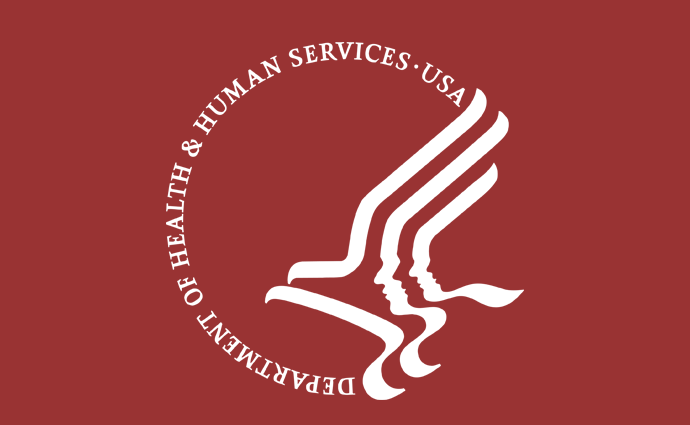HHS Urges States to Reduce Medicaid, CHIP Child Disenrollments
States that have not expanded Medicaid have higher child disenrollment rates than expansion states combined, new data indicated.

Source: HHS logo
- The Department of Health and Human Services (HHS) is urging states to employ federal strategies to help reduce child disenrollments from Medicaid and the Children’s Health Insurance Program (CHIP).
HHS released the first data on state Medicaid and CHIP enrollment changes among children and youth since eligibility renewals restarted in April 2023. The data shows how state policy choices have significantly impacted Medicaid and CHIP enrollment for this population, as states that have not adopted federal flexibilities have the highest disenrollment numbers.
Total Medicaid and CHIP enrollment has declined from 93.9 million beneficiaries in March 2023 to 88.5 million in September 2023. The number of child beneficiaries fell from 42.1 million to 39.8 million, marking a 5.3 percent decrease.
States that have adopted federal strategies provided by CMS and prioritized auto-renewals have seen lower disenrollment rates for children under 19, the data indicated. Meanwhile, states that have not expanded Medicaid—Alabama, Florida, Georgia, Kansas, Mississippi, South Carolina, Tennessee, Texas, Wisconsin, and Wyoming—have disenrolled more children than expansion states combined.
Beneficiaries who turned 19 while the continuous enrollment condition was in place are at risk of falling into the coverage gap and becoming uninsured if they live in a non-expansion state. This population has accounted for 27.6 percent of child disenrollments in non-expansion states since March 2023, compared to 12.1 percent in expansion states.
The nine states with the highest overall child disenrollment rates by number and percentage accounted for 60 percent of the decline in children’s Medicaid and CHIP enrollment between March and September.
South Dakota and Idaho both saw a 27 percent decline in enrollment, followed by New Hampshire, Montana, and Arkansas, all with an 18 percent reduction. Child enrollment decreased by 12 percent in Florida and Texas, 9 percent in Georgia, and 6 percent in Ohio.
HHS Secretary Xavier Becerra sent letters to the governors of these nine states encouraging them to adopt federal strategies to limit disenrollments, including Medicaid expansion. He urged them to remove barriers that make it harder for children to transition to CHIP coverage, such as enrollment fees and premiums, if they lost Medicaid eligibility.
Secretary Becerra also called on the governors to reduce call center wait times and partner with pediatric providers, managed care plans, community organizations, and schools to reach more families.
“CMS is doing everything in our power to protect access to health coverage during the Medicaid and CHIP renewal process, especially for children,” CMS Administrator Chiquita Brooks-LaSure said in the press release.
“That’s why we’ve put forward dozens of strategies for states to protect children and families’ ability to stay covered. Many states have worked with us to adopt the strategies we’ve put on the table – and we strongly urge all states to do their part to make sure eligible children keep the coverage they need to grow and thrive.”
CMS has released comprehensive guidance that details the different strategies states can implement to ensure coverage continuity for children with Medicaid and CHIP. For example, the auto-renewal, or ex-parte, process allows states to renew beneficiaries based on data they already have.
In addition, states can provide multi-year continuous eligibility for children through section 1115 demonstration authority and temporarily delay or pause procedural disenrollments for beneficiaries while states conduct targeted renewal outreach.
The guidance also stated that federal flexibilities will be extended for states through the end of 2024.
